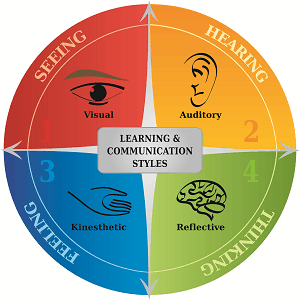Discover the intriguing connection between parenting styles and autism in our comprehensive guide that delves into the complex world of raising a child on the spectrum. As a parent, understanding the impact of your approach on your child’s development is crucial, and this article will help you navigate the various parenting styles and their potential effects on children with autism. From authoritative to permissive, join us as we explore the unique challenges and successes associated with each method, offering invaluable insights to empower you in your extraordinary parenting journey.
Exploring the Four Main Parenting Styles: How They Impact Children with Autism
![]()
In exploring the relationship between parenting style and autism, it is essential to discuss the four main parenting styles: authoritarian, authoritative, permissive, and uninvolved. Each style has a unique effect on a child’s development, especially for those on the autism spectrum. Children with autism often require specialized support and understanding, which can be influenced by their parents’ approach. By examining the different parenting styles, we can gain insight into how they impact the emotional, social, and cognitive development of children with autism, and ultimately identify the most effective strategies for fostering growth and success in these individuals. This understanding can better equip parents and caregivers to create a positive and nurturing environment tailored to the specific needs of children with autism.
The Importance of Tailored Parenting Strategies for Children on the Autism Spectrum

The significance of tailored parenting strategies for children on the autism spectrum cannot be overstated, as it plays a crucial role in their overall development and well-being. By understanding the unique needs and challenges faced by autistic children, parents can employ customized approaches that foster effective communication, enhance social skills, and promote emotional growth. Implementing individualized parenting techniques, grounded in evidence-based practices, is essential in nurturing a supportive and empowering environment for children with autism. This not only maximizes their potential for success but also strengthens the parent-child bond, ultimately leading to a more fulfilling and enriching family life.
Nurturing Emotional Intelligence in Autistic Children: The Role of Parenting Style

Cultivating Emotional Intelligence (EI) in autistic children is crucial for their overall development and well-being. Parenting style plays an essential role in nurturing EI, as it directly influences the child’s ability to recognize, understand, and manage emotions. Adopting an empathetic and supportive approach, characterized by open communication, active listening, and consistent guidance, can significantly enhance the emotional growth of autistic children. By fostering a safe and nurturing environment, parents can effectively support their child’s emotional needs, thereby improving their social skills, relationships, and overall quality of life. Integrating these strategies into daily routines will contribute to the development of emotionally intelligent autistic children, better equipping them to navigate the complex world of emotions.
Parental Stress and Autism: How Parenting Styles Can Influence Coping Mechanisms

Parental stress and autism are undeniably intertwined, as raising a child with autism often presents unique challenges that can contribute to increased stress levels. However, the way parents cope with this stress can be heavily influenced by their parenting style. A more authoritative and adaptive parenting approach, which combines warmth, support, and flexibility, can significantly improve coping mechanisms and overall family dynamics. By fostering open communication and understanding, parents can better manage their stress and create a more positive environment for their child with autism. Consequently, focusing on effective parenting strategies can ultimately lead to improved outcomes for both the parents and their child on the spectrum.
The Benefits of Positive Parenting Techniques for Supporting Autistic Children’s Development

The Benefits of Positive Parenting Techniques for Supporting Autistic Children’s Development are immense, as they foster an encouraging environment for growth and learning. Implementing positive parenting strategies, such as clear communication, consistency, and reinforcement, can significantly improve the emotional well-being and cognitive development of children with autism. These approaches not only enhance the child’s social and communication skills but also promote self-regulation and emotional stability. Embracing an empathetic and supportive parenting style can empower autistic children, ultimately enabling them to thrive and reach their full potential. Invest in your child’s future by adopting positive parenting techniques tailored to their unique needs.



